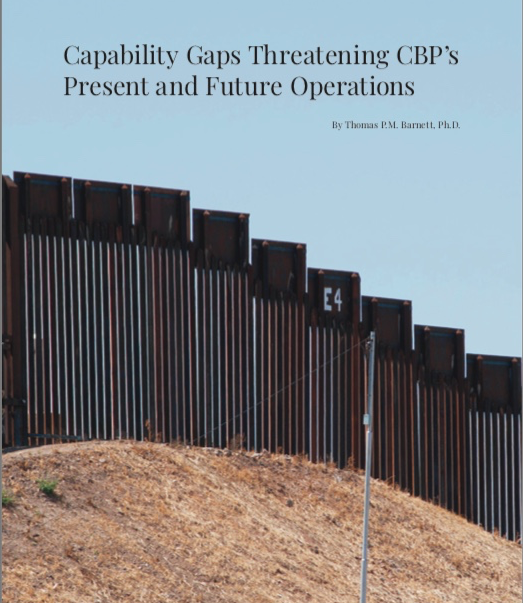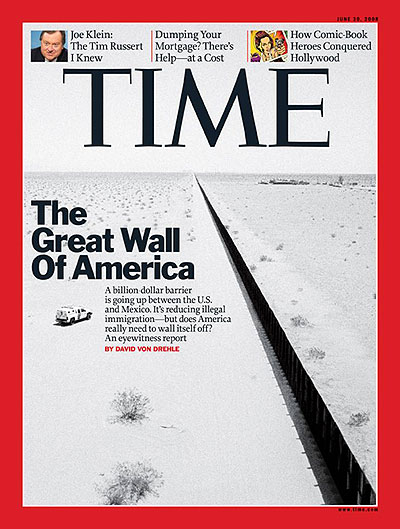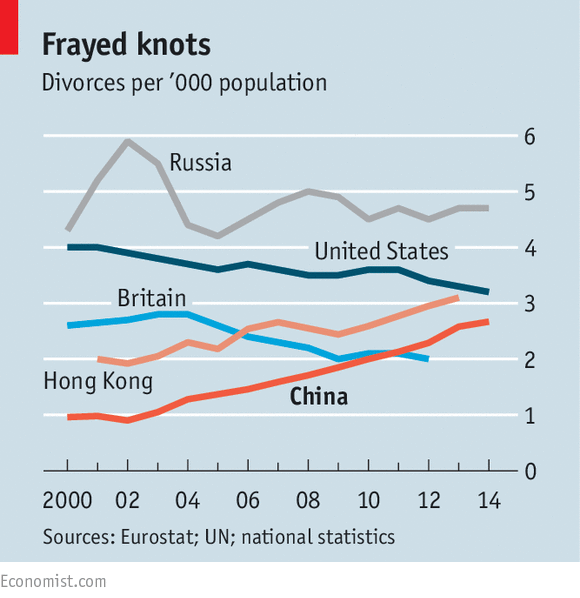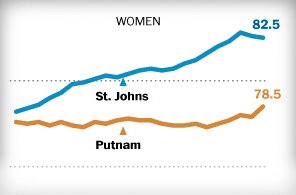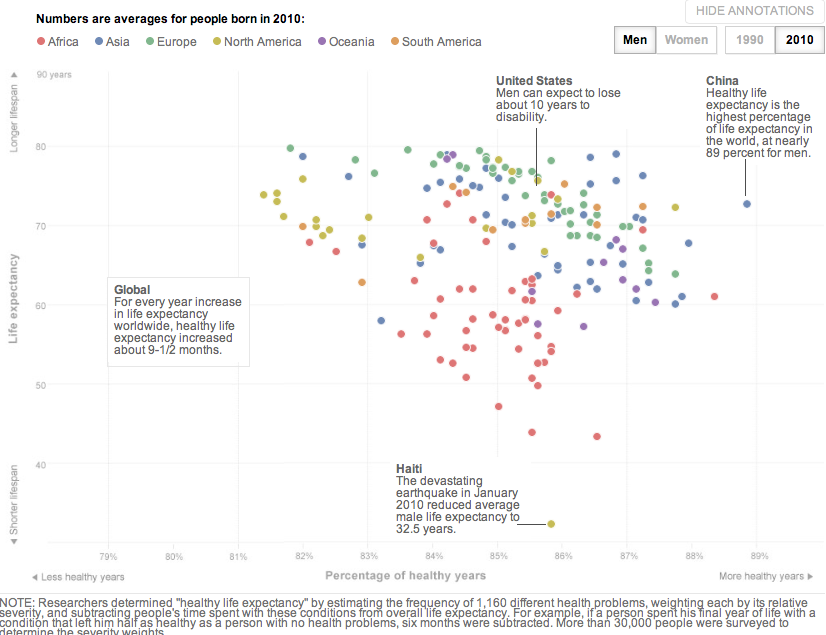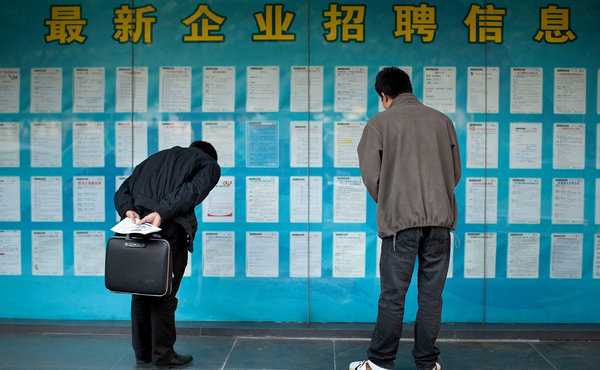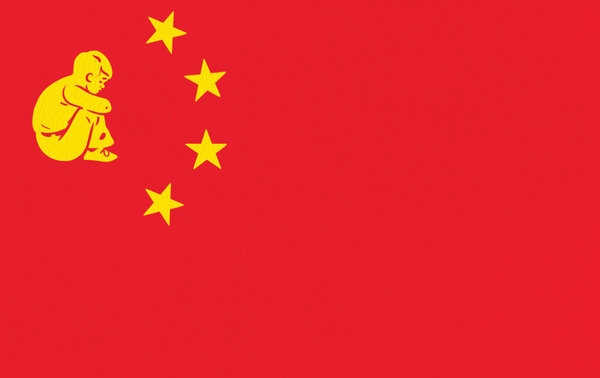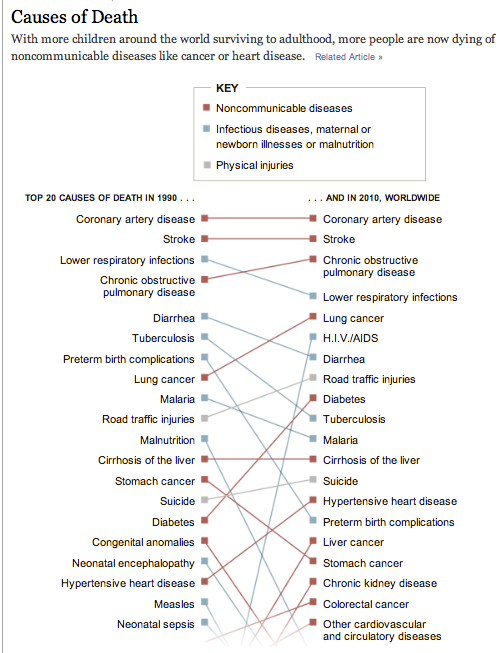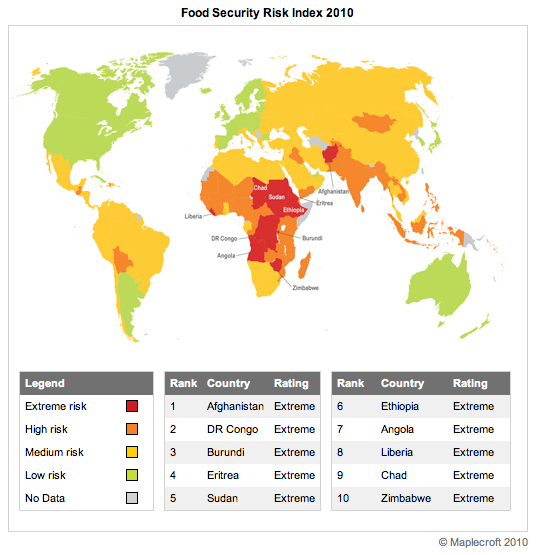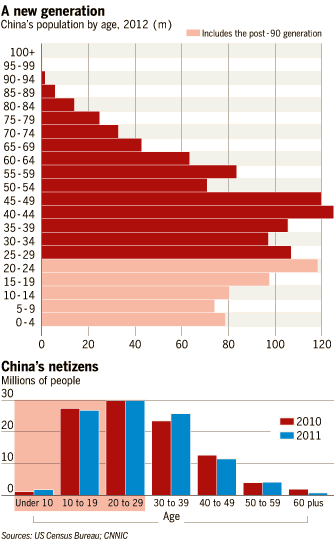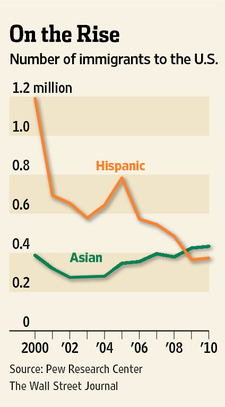The big differences include the improvement in living conditions, healthcare, and sanitation, plus dramatically altered cost incentives. Elders live a whole lot longer, costing in medical care. Children go from representing more labor on the farm to constituting new costs (education being the biggie). Housing is tighter and costlier. Family size drops dramatically, particularly as mothers are lured into more education and forced into second-paycheck careers.
In sum, elders, like kids, switch from being relatively low-cost additional assets to high-cost household liabilities. Families that a generation or two back always welcomed more births and always celebrated their elder's survival now start asking very different and difficult questions: Can we afford another child? What to do with grandma?
To me, what's most fascinating about these changes is how female-skewing they are. Throughout history, men were the far more "important," but think about today: Who lives longer? The wife – not the husband. Who takes care of you when you age? The daughter – not the son. Who's most stressed by this "sandwich generation" phenomenon (caring for kids and elders at the same time)? The mothers – not the fathers (who too often disappear). In America, two-thirds of caregivers are women.
I mean, I realize that when traditional societies leap forward into modernity, the tendency is for parents to still prefer boys as offspring, creating gender imbalances. But I don't see these lasting as historical dynamics. Smart money (and parents) in a modern society should overwhelming bet on more females – not more males. Women simply build more resilience into society as it ages, so they're the true assets while the men are the true drains.
I don't make this argument casually. I've been studying the demographics of aging for years now, and, coincidentally, after my wife and I had three kids (one daughter, two sons), we adopted three girls. In effect, we bet on girls at a tipping point in human history when they're still relatively devalued in transitioning societies (our girls hail from Asia and Africa); we went "long" on girls when the world continues to "short" them.
No, I don't pretend this unequal burden is new, as the hunter-v-nester dichotomy is as old as humanity is. I'm just saying it's getting more concentrated or further skewed thanks to modernization and everything that comes with it: birth control, divorce, single-mother households, more educational and career opportunities for women, etc. We can pretend that the sandwich-generation dynamic affects men and women equally, but it doesn't – not even close.
So no surprise to find a new study published in JAMA that notes the following toll being exacted:
Many family caregivers in the U.S. provide unpaid medical aid and other services to loved ones at the expense of their own financial, physical and mental health, a study suggests.
Nationwide, an estimated 14.7 million family caregivers assist 7.7 million older adults who live in the community rather than in institutions like nursing homes. These family members often help with daily activities like eating, bathing and dressing. Many also provide medical support such as scheduling physician checkups, managing medications, cleaning wounds and giving injections.
“This issue is not a small or isolated issue but is widespread,” said Jennifer Wolff of Johns Hopkins Bloomberg School of Public Health in Baltimore, who led the study.
 Roughly 23 million Americans may not sound like a lot, but that's already 1-out-of-14 Americans, and, rest assured, that proportion will balloon in coming years and decades, so we're being offered a preview of coming social costs.
Roughly 23 million Americans may not sound like a lot, but that's already 1-out-of-14 Americans, and, rest assured, that proportion will balloon in coming years and decades, so we're being offered a preview of coming social costs.
Almost half of the caregivers surveyed – 46 percent – helped an elderly person with Alzheimer’s disease or dementia. Another 34 percent assisted a loved one with a severe disability, the authors reported in JAMA Internal Medicine.
Roughly half of family caregivers provide substantial help with medical needs and spend around 28 hours a week assisting loved ones, the researchers found.
Compared with people who didn’t offer medical support, caregivers who provided substantial assistance with health care were 79 percent more likely to experience emotional difficulty and more than twice as likely to experience physical problems themselves as well as financial difficulties.
They were also more than five times as likely to miss out on important activities in their own lives and more than three times as likely to suffer lost productivity at work.
There are many reasons why the rich live substantially longer lives than the poor in this country, but one of them is that they can pay someone else to handle such burdens. The rest? They simply get worn down.
Even so, the findings add to a growing body of evidence on the physical, emotional and financial predicaments family caregivers often encounter because they devote so much of their time to assisting elderly loved ones, Carol Levine, of the United Hospital Fund of New York, notes in an accompanying editorial.
In terms of relative national resilience in the face of demographic aging, the U.S. faces a much easier (less "steep") road than does Europe, Russia, China, and Japan. Frankly, it's one of the key reasons why I, as a security strategist, don't worry all that much about the "threat" from Russia or China down the road.
But clearly, as a species, we're looking at some profound social changes as we collectively age, and women are going to be at the center of this political and economic transformation. Simply put, with all this demographic aging foreordained at this point, we'll either learn, as societies, how to become a whole lot more resilient or we'll collectively grow a whole lot more brittle.
Here's a big hint as to how women begin to dominate these responses as well: in the U.S., females currently make up the majority of advanced-degree earners (post-bachelor's degrees). This has been true for quite some time, and the skew is substantial at 60% female to 40% male. On that basis, and the longer voting "lives" of women (who outlive men by quite a few years, on average), the feminization of political systems is sure to follow. As it does, expect all manner of dramatic changes to address this looming demographic reality.
On that political trajectory, take a look at some of the demographically "oldest" democracies in the world – namely, the Scandinavian or Nordic states of Iceland, Norway, Denmark, Sweden and Finland. There you will find an unusually high percentage of women already in positions of national political power.
 Monday, September 9, 2019 at 9:15AM
Monday, September 9, 2019 at 9:15AM 